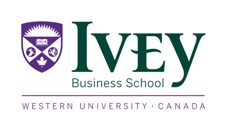It would grant a very wide birth to those responsible, but the fact is that almost every business calamity in the past two years was caused not because those responsible were doing their job and simply messed up, but rather because they – and some of the people under them – were deliberately or otherwise, not doing their job. That job is the exercise management oversight.
In Iceland, the country’s major banks used $100 billion in debt to finance foreign acquisitions. One problem was that Iceland’s GDP is a mere $14 billion; the bigger problem was that a global credit crisis occurred, shutting down lending and causing the banks – and Iceland’s economy – to collapse.
On Wall Street, banks use “repo” agreements to loan each other money as a matter of routine. They record the loans as “loans”. To rid itself of toxic mortgage assets, Lehman Brothers sold those assets to several banks in the Cayman Islands, promising to buy them back at a later date. However, Lehman recorded the transactions as a “sale” not a “loan,” as it was required to do, thus adding $50 billion in cash to its books and removing $50 billion in toxic mortgages. For sure, someone was observing these activities. Or maybe not. In fact, either could have been the case.
Nor was the neglect of oversight confined to the world of finance. In Montcoal, West Virginia, where the blast and collapse of a coal mine killed 29 miners, the tragedy was deemed to have been caused by unsafe conditions. The fact is that the operator of the mine had been previously cited for safety violations, citations which were certainly noted but not apparently acted on or enforced. The fact here is that at least one organization was responsible for overseeing that the company complied with those citations.
Oversight has a few things in common with governance. In theory, both practices, properly enforced, protect people – employees, small communities, shareholders and even directors – from being victimized or visited by tragedy caused by a disregard or lack of respect for certain rules and protocols. But, people lose money and families lose loved ones.
As has been documented in books and media reports over the past few years, a willful “turning of the cheek” mentality prevails on oversight bodies when discussion of certain sensitive issues or questionable practices takes place. So too does “groupthink,” in which individuals on those bodies side with a perceived consensus that seems to support the leader, for better or for worse.
Oversight also has at least one critical thing in common with regulation. Calls by stakeholders and observers for stricter oversight or more regulation have intensified. But here too, documented and anecdotal evidence has shown that physical or financial tragedies, or moral breakdowns, have not been caused by inadequate oversight or insufficient regulation. Oversight and regulation were there, in Montcoal, West Virginia, and on Wall Street, in Lower Manhattan. The problem was that they were not enforced. The opportunity remains still, to bring out the best of intentions and apply the highest standards and expectations of management oversight.

